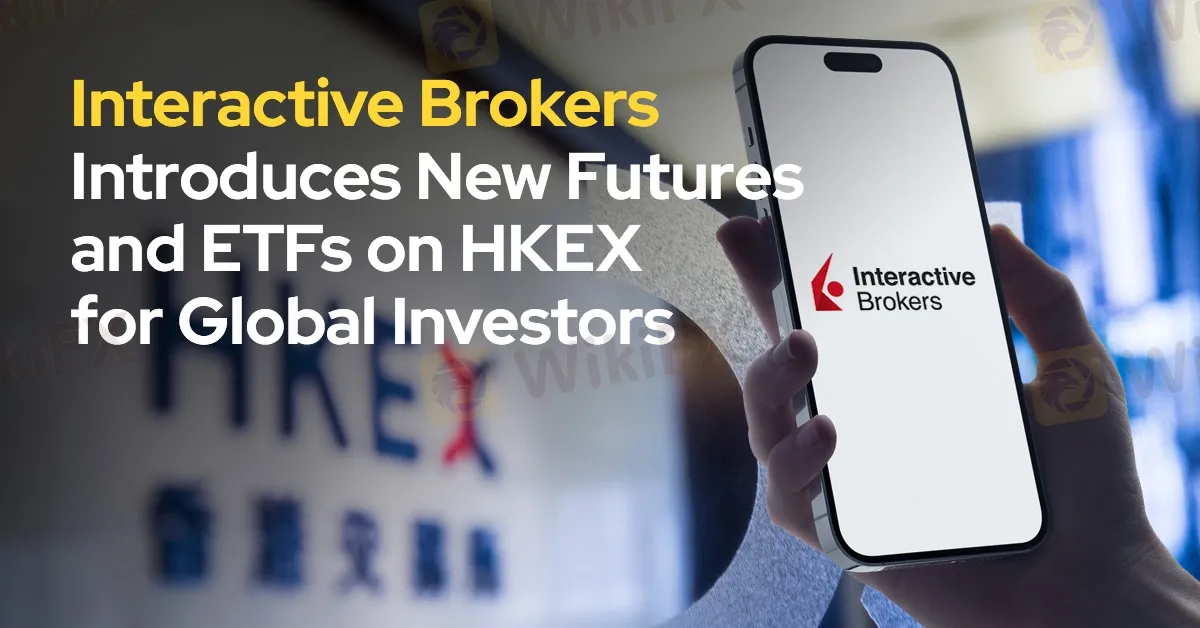简体中文
繁體中文
English
Pусский
日本語
ภาษาไทย
Tiếng Việt
Bahasa Indonesia
Español
हिन्दी
Filippiiniläinen
Français
Deutsch
Português
Türkçe
한국어
العربية
Interactive Brokers Introduces New Futures and ETFs on HKEX for Global Investors
Abstract:Interactive Brokers continues to enhance the range of investment instruments available to its global clientele. The firm has recently broadened its offerings on the Hong Kong Exchanges and Clearing Limited (HKEX), allowing investors to tap into a wider variety of products across key markets.

Interactive Brokers continues to enhance the range of investment instruments available to its global clientele. The firm has recently broadened its offerings on the Hong Kong Exchanges and Clearing Limited (HKEX), allowing investors to tap into a wider variety of products across key markets.
Among the new additions are 85 Exchange-Traded Funds (ETFs) for Northbound trading via Stock Connect, a program that enables international investors to trade mainland Chinese shares from Hong Kong. This inclusion enhances the opportunities for clients to diversify their portfolios by accessing Chinas rapidly evolving financial markets.
Interactive Brokers has also introduced Futures Options (FOP) on the Hang Seng TECH Index Futures, providing investors with more ways to trade this increasingly popular index, which tracks the performance of the largest technology companies listed in Hong Kong. In addition to this, investors now have access to Hang Seng China Enterprises Index Futures Options (PHH) and Hang Seng Index Futures Options (PHS). These futures options enable investors to take positions on the performance of major Chinese enterprises and the broader Hang Seng Index, which is a benchmark for Hong Kongs equity market.

Furthermore, the HKEX has received regulatory approval to implement Severe Weather Trading (SWT) across its securities and derivatives markets, effective from September 23, 2024. The SWT system allows for trading continuity during severe weather conditions, extending to Stock Connect, derivatives holiday trading, and after-hours trading sessions. This move by HKEX enhances the resilience of Hong Kongs markets by providing uninterrupted access to trading, even in adverse weather conditions.
HKEX, a publicly traded company under the stock code 388, is a leading global exchange group offering a comprehensive range of equity, derivatives, commodity, and fixed-income markets. Its role as a crucial financial hub is further strengthened by its ownership of the London Metal Exchange, allowing it to serve a broad spectrum of international investors and institutions.

Disclaimer:
The views in this article only represent the author's personal views, and do not constitute investment advice on this platform. This platform does not guarantee the accuracy, completeness and timeliness of the information in the article, and will not be liable for any loss caused by the use of or reliance on the information in the article.
Read more

How to Know if the Market is Correcting or Reversing?
In trading, distinguishing between a market correction and a market reversal is crucial for making sound decisions. Misjudging one for the other can lead to missed opportunities or significant losses. While both involve price movements, their causes, duration, and implications differ substantially. Understanding these differences can help traders improve their strategies and adapt to market conditions effectively.

Empowering the Next Generation in Finance with WikiFX: Gen Z’s Investment Journey
With a steadfast commitment to fostering sustainable financial literacy and providing clear, strategic guidance to the next generation, WikiFX has collaborated with Van Lang University and Hoa Sen University to host an exclusive series of financial education workshops. This marks a pioneering initiative by WikiFX in Vietnam, designed not only to deliver foundational knowledge but also to instill a sense of responsibility and cultivate prudent financial decision-making among aspiring young traders.

Robinhood Launches Options Trading in the UK by 2025
Robinhood to introduce options trading in the UK by 2025 following FCA approval. Discover how this expansion aligns with Robinhood's strategy for global growth and new features.

What Impact Does Japan’s Positive Output Gap Have on the Yen?
The Japanese government has announced that, due to a tight labor market, the country’s economic output is expected to return to full capacity in the next fiscal year for the first time in seven years.
WikiFX Broker
Latest News
Why is there so much exposure against PrimeX Capital?
Russia to Fully Ban Crypto Mining in 10 Regions Starting January 1, 2025
Two Californians Indicted for $22 Million Crypto and NFT Fraud
Macro Markets: Is It Worth Your Investment?
WikiFX Review: Is Ultima Markets Legit?
Colorado Duo Accused of $8M Investment Fraud Scheme
What Impact Does Japan’s Positive Output Gap Have on the Yen?
RM62k Lost Investment Scam After Joining XRP Community Malaysia on Telegram
Victims of Financial Fraud in France Suffer Annual Losses of at Least €500 Million
SEC Warns on Advance Fee Loan Scams in the Philippines
Currency Calculator


